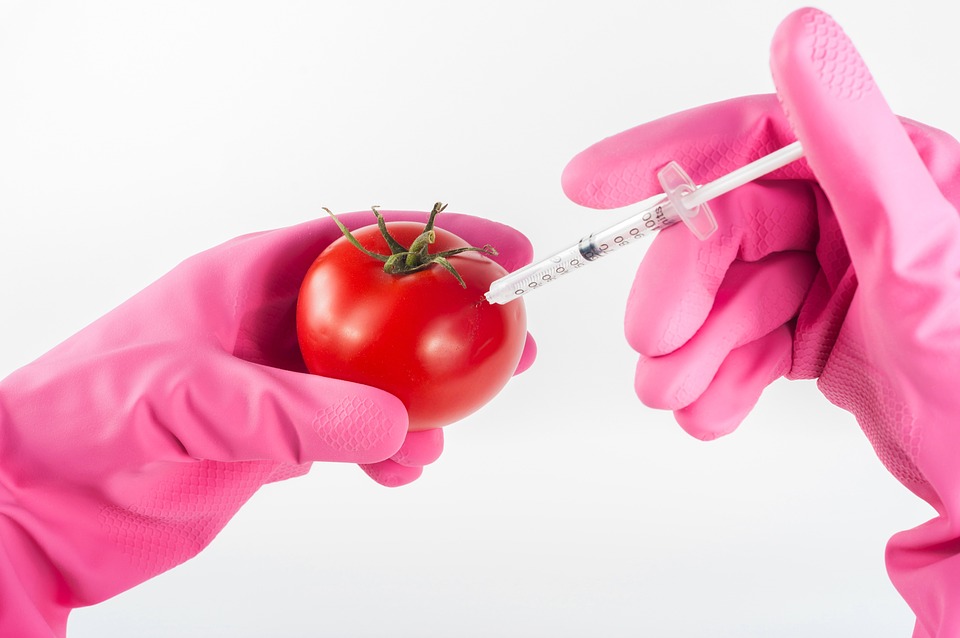
Nowadays, the word “inflammation” is commonly heard in conversations about nutrition. The phrase “you are what you eat” has been around for a long time, and it really emphasizes the importance of looking at how the food we eat may impact our well-being. It is an important factor in deciding if Inflammation in our bodies is rising or decreasing. We acknowledge that medications may be necessary to control and treat chronic inflammation in some individuals, however others may experience benefits from following a diet that is focused on reducing inflammation.
What Is Inflammation?
One of the body’s natural protection methods is irritation. Additionally, it includes multiple chemical reactions that increase the circulation of blood to areas that require treatment, ward off diseases, and provoke pain as an alert that the body is not functioning correctly.
Its advantageous when it is utilized for preventive purposes in treating injuries like grazes and cuts, or sicknesses like the common cold. However, long-lasting, chronic Inflammation can harm organs and tissue.
What Causes Inflammation?
Your body may become inflamed as a result of an illness or injury, or due to gaining weight and other conditions which the immune system reacts to.
Therefore, inflammation is part of the mechanism enabling cells and tissues to heal. Once our body recognizes a foreign intruder, it begins a process immediately to try and eradicate the pathogen prior to any harm to tissues or organs. The area where bacteria or germs gain access to our body will become swollen as a consequence.
Occasionally, when the immune system is not very strong, it mistakenly sees the body’s own cells or tissues as a threat. Ultimately, this lack of functioning can lead to constant, continuous irritation, resulting in autoimmune illnesses and metabolic ailments, such as type two diabetes, coronary artery disease, and weight gain.
Types Of Inflammation
As an example, most of us have experienced Inflammation at some point if ever injuring our knee, cutting our finger, or being stung by a bug. For instance, inflammation is distinguished by the classic signs of aching, tinge, edema, and fever which can occur following a hurt or sickness. Primarily, it is a vital way to stay alive. Inflammation helps the body fight off any illness-causing bacteria and mend any hurt tissue.
However, another aspect of Inflammation might be detrimental to human health rather than advantageous. Evidence exists that a number of illnesses are improved by Inflammation, which is caused by things such as being overweight, smoking, and leading a sedentary lifestyle.
Two distinct kinds of Inflammation exist, specifically acute and chronic Inflammation.
- Acute Inflammation develops quickly, typically within minutes, but is usually short-lived. Further, many defense mechanisms that destroy invasive bacteria switch to repair injured cells and remove dead ones. Through this cycle, the affected area is brought back into balance, and the Inflammation, therefore, goes away within a few hours or days.
- Chronic Inflammation frequently starts as the same cellular response, but when the immune system’s response is unable to solve the issue, it develops into a persistent condition that lasts for months or years. Similarly, the Inflammation could persist even after the acute danger has passed.
An inflammatory reaction may be activated even when there is no noticeable damage or disease present. Without proper regulation, white blood cells can mistakenly attack surrounding healthy tissue, resulting in ongoing inflammation that leads to several of the most serious ailments of today, like rheumatoid arthritis, cancer, heart disease, diabetes, asthma, and Alzheimer’s. Boost your immunity too with this diet.
Health issues that cause long-term swelling and inflammation can be caused by factors like nutrition, how somebody lives, and inherited from family members.
How Can You Tell Whether You’re Inflamed?
Well! This one is tricky. Although certain physical symptoms may indicate that you have underlying Inflammation in your body, you may not even be conscious of it.
Experts state that the symptoms of swelling, redness, puffiness and skin rashes may appear in the hands and feet. When your jeans are snug around your midsection, you may find yourself feeling bloated.
Additionally, signs of exhaustion, putting on extra pounds, aches in the muscles and joints, migraines, and digestive issues may be indicative of something being wrong. You may be more likely to contract the flu and/or colds; in that case, they might linger for a few weeks.
Role Of Anti Inflammatory Diet?
Eating meals that contain lean proteins, complex carbohydrates, and a range of beneficial nutrients, like beans and a variety of fruits and vegetables should be given priority when following an anti-inflammatory diet. Eating red meat should be limited to no more than twice a week, and it should be accompanied by a decrease in processed foods, added sugars, and foods that have been heavily processed (like white bread and white flour). This diet is planned to cut down the body’s long-term Inflammation.
Research has suggested that systemic chronic inflammation is a primary factor in a range of illnesses, such as autoimmune disorders, diabetes, chronic kidney disease, non-alcoholic fatty liver disease, cancer, and neurodegenerative diseases. By making changes to your daily habits, such as getting a good night’s sleep, doing physical activity, decreasing anxiety levels, and eating foods that are known to reduce inflammation, you can reduce the amount of inflammation in your body to an extent.
One of the best ways to lessen inflammation in the body is to eat anti-inflammatory items in your meals. Also, omega-3 fatty acids, lean protein, healthy fats, and spices are all abundant in anti-inflammatory meals. You may also add in foods such as spinach, apples, and other produce including cherries, pomegranates, blueberries, and beets that have been proven to reduce inflammation.
In the same way, numerous diseases that are aggravated by continuous Inflammation may find relief from an anti-inflammatory diet as a helpful treatment.
Inflammation is present in the following diseases:
- Rheumatoid Arthritis
- Colitis
- Lupus
- Scleroderma
- Asthma
- Eosinophilic Esophagitis
- Crohn’s Illness
- Chronic Pain
- Stroke
- Type 2 Diabetes
- Hashimoto’s Thyroiditis
- Metabolic Syndrome
- Psoriasis
Anti-inflammatory Foods
A diet that is designed to reduce inflammation should include a balanced combination of proteins, carbohydrates, and fats in each meal, as well as provide a source of vitamins, minerals, and fiber. Foods that may help manage or reduce inflammation include:
Fruits and vegetables
All fruits and vegetables fight inflammation in some way. Fill up on cruciferous vegetables, such as broccoli, cauliflower, Brussels sprouts and kale – they contain sulforaphane, which fights inflammation by reducing your levels of cytokines. Fruit such as strawberries, blueberries, raspberries and blackberries have strong antioxidants called anthocyanins. Fruits like oranges, lemons, tomatoes, mushrooms, chili peppers, and grapes have been proven to have anti-inflammatory effects.
Aim for consuming five to nine portions of fruits and vegetables on a daily basis.
Whole grains
Whole grains such as oats, brown rice, and whole wheat bread are not as processed as other grain products. This makes them high in fiber, full of antioxidants, and packed with vital nutrients. In a meta-analysis published in the journal Medicine, diets rich in whole grains were associated with a significant decrease in inflammatory markers such as CRP – and as such, helped to reduce systemic inflammation.
Give it a go: Replace processed grains with items that have whole grains as the primary component.
Pulses
Pulses include all beans, peas, and lentils. They are packed with fiber, antioxidants, and magnesium, which has the capability to combat inflammation (interestingly, inadequate magnesium intake is associated with a higher risk of chronic inflammation). Include black beans, garbanzo beans, green peas, lentils, red beans, and lima beans in your meals.
Attempt this: Exchange the red meat regularly seen in meals such as chili and bolognese with legumes, peas, and pulses.
Healthy fats
There are two forms of beneficial fats: Monounsaturated fats, which are found in almonds, seeds, and avocados, and polyunsaturated fats, which are in fish and certain types of nuts and seeds. Both are packed with inflammation-fighting antioxidants. Olive oil is especially powerful – it has oleocanthal in it, which behaves as ibuprofen does. Avocados possess such powerful anti-inflammatory characteristics that even if you eat foods that are not so healthy, the effects can be counterbalanced.
Substitute olive oil, avocados, nuts, and seeds instead of butter, margarine, and vegetable oils.
Fatty fish
It has been discovered that the omega-3 fatty acids from fish with oil can block the growth of compounds that lead to inflammation, as well as help to break them down. Fish such as sardines, salmon, and rainbow trout contain EPA and DHA, which are fats that are broken down into resolvins and protectins. These biological agents have been demonstrated to be anti-inflammatory. Omega-3 fatty acids can be obtained from a variety of sources, such as pine nuts, walnuts, flax, and sunflower seeds, though they are not as easily accessible.
Consume more foods that are high in omega-3s, such as flaxseed, walnuts, and fish that contain oils.
Herbs and spices
Herbs and spices are rich in vitamins, minerals, phytonutrients, and compounds that act as potent anti-inflammatory agents. Curcumin, which is present in turmeric, capsaicin which can be found in chili peppers, piperine in black pepper, and rosmarinic acid and carnosic acid which is present in rosemary, have all been scientifically verified to have anti-inflammatory properties.
Instead of sprinkling salt on your food, explore other taste boosters such as garlic and ginger.
Coffee, tea, and dark chocolate
Consuming coffee, particularly green tea, and dark chocolate can be beneficial as they are full of phytonutrients, including polyphenols, which can assist in reducing inflammation. They also include caffeine that gives guard against inflammation inside the head.
Make sure you pick dark chocolate which is at least 70 percent cocoa in order to get the advantages of anti-inflammation, and when drinking tea or coffee, avoid putting in extra sugar or sweeteners since these can introduce pro-inflammatory materials into the body.
Inflammatory Foods to Avoid
Certain foods and drinks can make chronic inflammation worse. When following an anti-inflammatory diet, try to avoid (or limit your intake) of the following foods:
- Processed foods, such as crisps and crackers
- Processed meats, such as hot dogs and sausages
- Foods with added sugar or salt
- Refined carbs, such as white bread, white pasta, and baked goods
- Excessive alcohol consumption
- Sugar-sweetened drinks and fruit juice
- Desserts, such as ice cream, biscuits, and cakes
- Processed seed and vegetable oils, like sunflower and peanut oil
- Dairy products, such as milk, cheese, butter, and margarine
Certain people may have a reaction of inflammation after consuming gluten, while others may be sensitive to vegetables from the nightshade group, like tomatoes, eggplants and peppers. If you experience this, speak to your doctor. They may suggest not including these foods in your eating habits for a two-week period to determine if the indications improve.
How to Support An Anti-inflammatory Diet
To support your anti-inflammatory diet beyond your weekly shop, incorporate these lifestyle tips – or consider taking a specialist supplement:
Lose weight
An efficient method of minimizing inflammation throughout the body is to shed any additional pounds. According to Dr. Brewer, this is especially advantageous for those who generally carry fat around the midsection of their body. Shedding pounds brings about the diminishment of inflammatory compounds from fat cells.
Exercise
Low-impact physical activities, like strolling and biking, will yield the most advantageous effects for people suffering from extended inflammation. Dr. Brewer mentions that too much exercise can aggravate inflammation since it leads to the formation of free radicals in the muscle tissue.
Get enough rest
Not getting enough sleep even for a short amount of time can activate a cellular system which ends up causing inflammation, a new study featured in the Elsevier journal revealed. So be sure to prioritize your 40 winks.
Take glucosamine
Dr. Brewer asserts that glucosamine supplements have the ability to strongly reduce inflammation. She claims that it is just as successful in relieving intense arthritic pain in the knee as the prescribed anti-inflammatory medication celecoxib. Its ability to reduce inflammation has been linked to living longer because it generally lowers the chances of experiencing a heart attack or stroke.
Try Devil’s Claw
Dr. Brewer notes that Devil’s Claw, a conventional herbal medicine, includes anti-inflammatory agents like harpagoside. This suggests that taking an anti-inflammatory can have a great effect on pain and stiffness within the muscles and joints, particularly back pain.
Conclusion
A diet that reduces inflammation may help decrease your probability of getting illnesses such as cancer, arthritis, COPD, and heart disease. Eating food items rich in antioxidants and omega-3s that reduce inflammation is necessary while avoiding dishes with a high glycemic index or high levels of omega-6 fatty acids that can cause inflammation.
Anyone can benefit from following the fundamental guidelines for an anti-inflammatory diet. Speak with your doctor or a nutritionist if you are unsure of how to begin.
It is very important to remember that diet cannot be the only factor in avoiding or treating medical conditions such as diabetes or hypertension. In addition, it is essential to get regular physical activity, decrease alcohol consumption, stop smoking, and reduce weight.
Fun Fact
Individuals invest large sums of money in weight loss supplements believing them to be the most effective way to reduce their weight. Cinnamon is widely considered to be the most effective fat burner in the world. In addition, they are among the top anti-inflammatory foods you can add to your meal plan.














